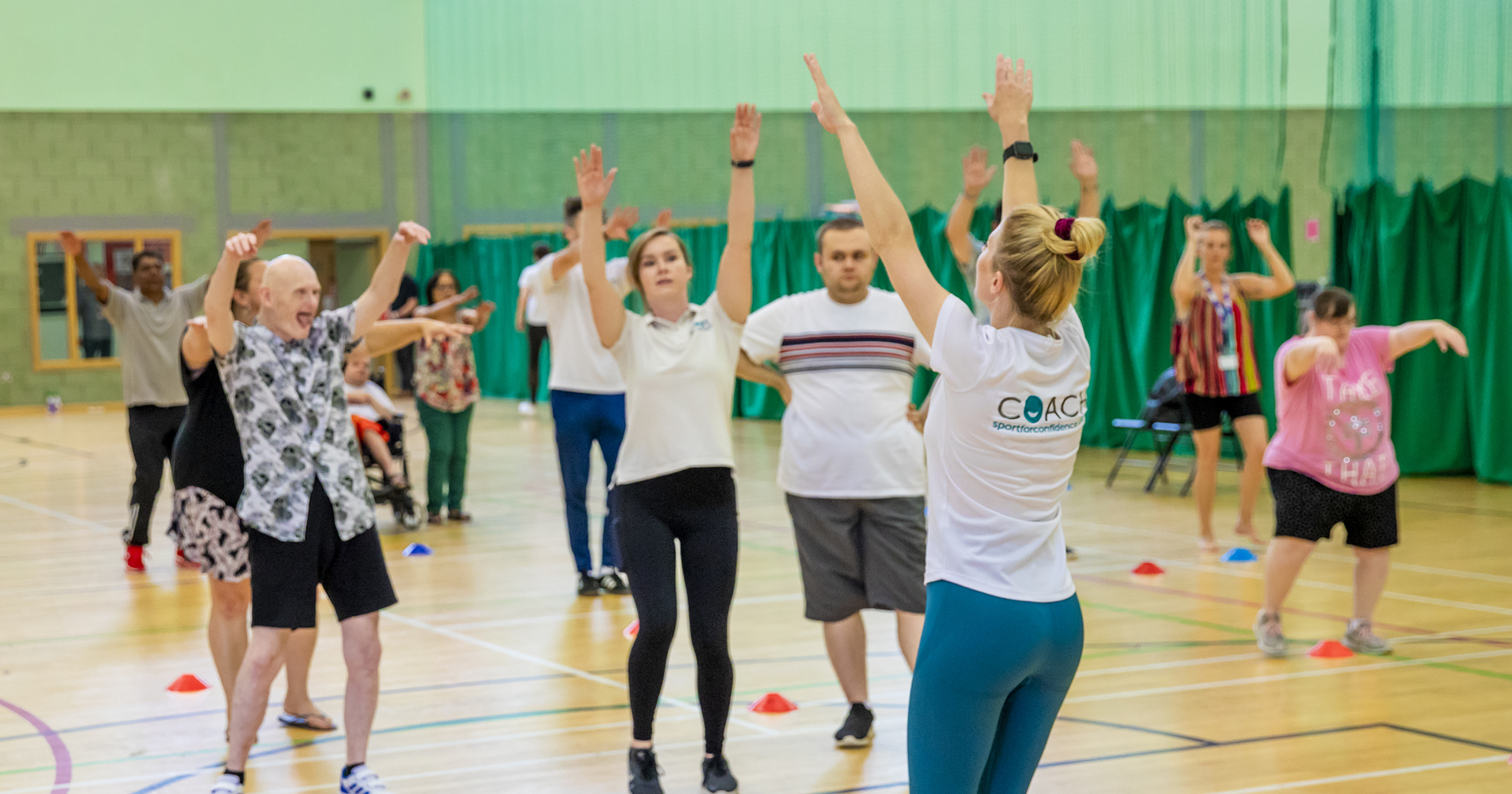Write to Reply - Liz Fletcher, Sport for Confidence National Team Lead, responds to the ‘Fixing the social care crisis' feature published by Health Club Management, Jan 9, 2024
Posted on 13th March 2024 at 09:43
'Classifying the state of UK adult social care as ‘crisis’ sounds dramatic but it is a fair description of our crumbing system. I read Martyn Allison’s comments on the HCM website entitled ‘Fixing the social care crisis’ (Jan 09, 2024) with interest. In the feature he proposed dramatic change is needed to the delivery of adult social care if we are to make any headway in reducing the burden on the NHS and clearing some of the estimated 400,000 people, in England, waiting for care assessments. Whilst staffing issues and financial shortfalls have been largely blamed for this backlog, the fact that we have an ageing population that is increasingly inactive and unhealthy is certainly adding significant weight to the situation.
I whole-heartedly support Martyn’s belief that, as a nation, we need to reform the way we approach adult social care and also with his view that success lies in place-based collaborative working between multiple organisations across the public and private sector. I also believe physical activity can play a central role in the solution.
In Essex we have already evidenced the success a collaborative approach that places physical activity at the heart of the delivery can achieve. In 2022, Sport For Confidence formed a strategic partnership with Adult Social Care at Essex County Council and Active Essex to deliver a 2-year test and learn Local Delivery Pilot (LDP) to evidence the impact of a whole system approach to adult social care and health. In addition to the strategic partners, we also enrolled the support of a diverse range of wider partners across Adult Social Care, the NHS, and the third sector, including local authorities, Essex County Council teams, Provider Quality Innovation Team, and care homes.
The Prevention and Enablement Model placed physical activity at its core. Evidence compiled and verified independently by the University of Essex found that the positive impact of embedding physical activity into a whole system approach to adult health and social care could deliver £58.72 of social value for every pound invested. Participants engaged less in service use (i.e., day care, formal/informal support, GP appointments, 999 calls, and hospital visits) equating to a saving of £365.23 per participant, per year and increased their physical activity levels.
Based on the success of this pilot, the project was awarded funding to extend the program for 12 months from April 2023 to March 2024 and adding a third host venue to increase capacity and accessibility. The pilot also prompted Essex County Council to issue a ‘Reconnect – Early Help and Prevention’ tender for the commission of place-based, therapeutic interventions that support and encourage adults living with learning needs and/or disabilities, as well as those living with long term health conditions, to be physically active within their local area. The £1.3 million fund would support a program for an initial three-year period with an option to extend by a further two.
This is a huge step forwards and marks an encouraging and significant step-change in the traditional delivery model. It also showcases the ambition of Essex County Council to look for a new solution – plugging into established community-based resources and expertise, provide support to struggling NHS services and delivering positive health outcomes whilst also addressing inequalities. Sport For Confidence backs this ambition 100 per cent.
Our work is not limited to Essex. In Nottingham, Sport For Confidence is consulting to a collective consort which includes; Nottingham Healthcare NHS Trust (IDD Community MDT Newark and Holly Trinity Lodge Day Centre), YMCA Newark and Boccia England established to hardwire physical activity into health and social care.
There's a growing call in Health and Adult Social Care for a shift toward prevention and integrated approaches over traditional intervention-focused practices. The many physical and mental benefits associated with being physically active both in terms of the prevention and management of major health conditions are well documented. This program provides a clear pathway from a health service to a leisure centre which enables participants with Intellectual and Developmental Disability to create, access, participate and sustain physical activity opportunities.
Participants are directed from NHS services to their nearby YMCA Community and Activity Village, where they can take part in Boccia sessions tailored to their needs on a weekly basis. These sessions are conducted by the YMCA team and are specifically designed in collaboration with the NHS Newark team. Healthcare professionals, such as occupational therapists, speech therapists, and physiotherapists, adapt their clinical expertise to the community and activity-oriented setting. They closely collaborate with coaches to make personalised adjustments, ensuring that everyone can meaningfully participate. Additionally, Sport for Confidence has recently concluded a similar project in partnership with Golf in Society, showcasing positive evaluation results by utilising a golf club as a health hub for individuals with cognitive decline.
These are just three specific examples of how Sport For Confidence is facilitating a whole-system approach to health and social care. It’s too early to evaluate outcomes of the Nottingham intervention as it has only just got underway but the success of PEM provides confidence in the approach.
In his interview with HCM, Martyn Allison, says: “By working collaboratively across places and focusing on addressing the shared priorities we can together change how the system works.” I have witnessed, first hand, the success of this model. To achieve nationwide system-change and deliver truly proportionate universalism when it comes to health, cross sector, cross organisation collaboration and integration of services will be absolutely essential. Whilst this is difficult it is not impossible.
The bottom line is, if physical activity is tailored to achieve specific outcomes , delivered by sports coaches in collaboration with health professionals and hosted in an inclusive, accessible setting it has the power to unlock huge health potential at a fraction of the cost of long-term clinical interventions. We are proving this through the Sport For Confidence model.
The evidence exists. We and the wider sector now need to focus on working with health and social care to deliver a system that is not only effective but also commercially sustainable.'
Read Martyn Allison's original piece - 'Fixing the social care crisis is key to success of public sector leisure' published on the Health Club Management website, 9th January 2024
Tagged as: active lifestyle, adult health and social care, health and wellness, inclusion, occupational therapy, OT, physical activity, prevention and enablement, social care
Share this post:







